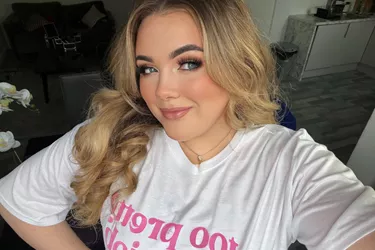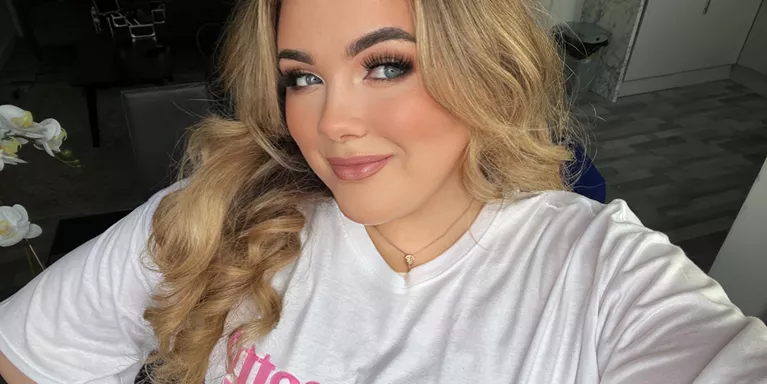The Grey Space
Georgia, from South Wales, describes how her transition to adult mental health services left her feeling lonely and confused.
Georgia is supporting our Sort the Switch campaign, where we're calling on Welsh Government and mental health services to listen to young people and sort the switch from specialist child to adult mental health services.
Warning: this blog discusses eating disorders.
My name is Georgia and I am 18 years old, from South Wales. I have been receiving treatment for an Eating Disorder since I was 14. I was with a very secure team at CAMHS who were able to get me to a point where I was progressing really well with my treatment and slowly getting better. Then I turned 18, and this is where it all changed.
I describe my transition from CAMHS to adult services as a ‘grey space’. The grey space felt lonely, lost, uncontrolled and confusing. I really fear uncertainty and going from a consistent support system at CAMHS and then having to wait for a very long time to be picked up by Adult Services sent me into a serious relapse of my Eating Disorder. Being in this ‘grey space’ meant I was not ill enough at the time to need an immediate admission into a specialist unit but I was showing signs that things were deteriorating. My Eating Disorder was getting stronger overtime and I began losing weight very rapidly.
"I never knew when things were going to ‘kick off’ and I felt unsafe and misunderstood."
My CAMHS team made a referral for me to go to Adult Services whilst trying to prevent my deterioration in the meantime. However, they had no power to make big decisions over me as I was now over 18, which meant I continued to go to University and live away from home. In this time, my Eating Disorder got progressively worse which meant I had to drop out of University.
I got to a crisis point where my CAMHS consultant had to call an adult psychiatric ward and get me admitted that day. With hard work from my consultant, Adult Services finally picked me up and I was admitted into hospital. I soon realised that a psychiatric ward was not the right environment for a young girl with an Eating Disorder. Patients were mainly three times my age with mental illnesses ranging from schizophrenia, depression and addiction issues. I never knew when things were going to ‘kick off’ and I felt unsafe and misunderstood. The team had limited experience with Eating Disorders so my behaviours went under the radar and I was able to continue to lose weight. It felt like no one knew what to do to help me and it took several weeks before I came in contact with an Adult Eating Disorder Team. By this point, I had become so unwell that whatever anyone was telling me could not change anything.
I remained on the psychiatric ward for several months, continuing to lose weight every week. Finally, when in touch with an Eating Disorder service, they knew immediately that I needed to be admitted into a specialist Eating Disorder unit. However, there was no unit in Wales which meant I would have to be sent to another country and would have to wait for an available bed. The waiting felt like forever for my parents, as they watched me get weaker and seriously unwell. I had to be admitted to a general hospital because my body was shutting down.
"All of that time wasted where I had been deteriorating with limited support could have been prevented if I had a smoother transition from CAMHS to adult services."
I had to be extremely unwell to get the bed at the specialist unit as it was based on priority of who needed it. Three weeks after being on a general hospital ward, me and another person from Wales were put forward for one available bed in a specialist Eating Disorder unit in England. I was fortunate to get this bed and I was finally sent to a specialist inpatient unit in England, where I was able to get the support I had been waiting for all of this time.
All of that time wasted where I had been deteriorating with limited support could have been prevented if I had a smoother transition from CAMHS to adult services. Unfortunately, from meeting many people with Eating Disorders, practically all of them have had the same experience as me or even worse. People with Eating Disorders are left to reach a particular BMI before they are taken seriously. Before that, you are left to struggle at home or on a psychiatric ward with people who don’t know how to treat eating disorders. Due to limited specialist units you can be sent to one anywhere in the UK (I was lucky to get one only two hours from where I lived).
"This lack of consistency and continuity in treatment is costing lives."
This lack of consistency and continuity in treatment is costing lives. Eating Disorders are serious mental illnesses and not receiving treatment quickly enough could be fatal. I am lucky that I am now at such a better place. I have worked really hard to follow advice from the professionals here and I am soon to be discharged. I now have a great team who will continue to support me at home and I hope to never have to go into hospital again.
The bottom line of my story is that if I was seen immediately and I wasn’t left in this ‘grey area’, then I may not have reached crisis point. Prevention is better than cure. This is why I am passionate about Sorting the Switch to prevent this from happening to anyone else.

See what we're campaigning on

Our campaigns
We'll fight your corner. We believe everyone with a mental health problem should be able to access excellent care and services. We also believe you should be treated fairly, positively and with respect.
Share your story with others
Blogs and stories can show that people with mental health problems are cared about, understood and listened to. We can use it to challenge the status quo and change attitudes.













